Twitter Featured | Blizzard, Bakkt only 71 BTC on the first day of trading? COO: retail investors will arrive soon
Bakkt, the first physical delivery futures contract exchange, went online yesterday. Up to now, Bakkt has traded at 71 BTCs.
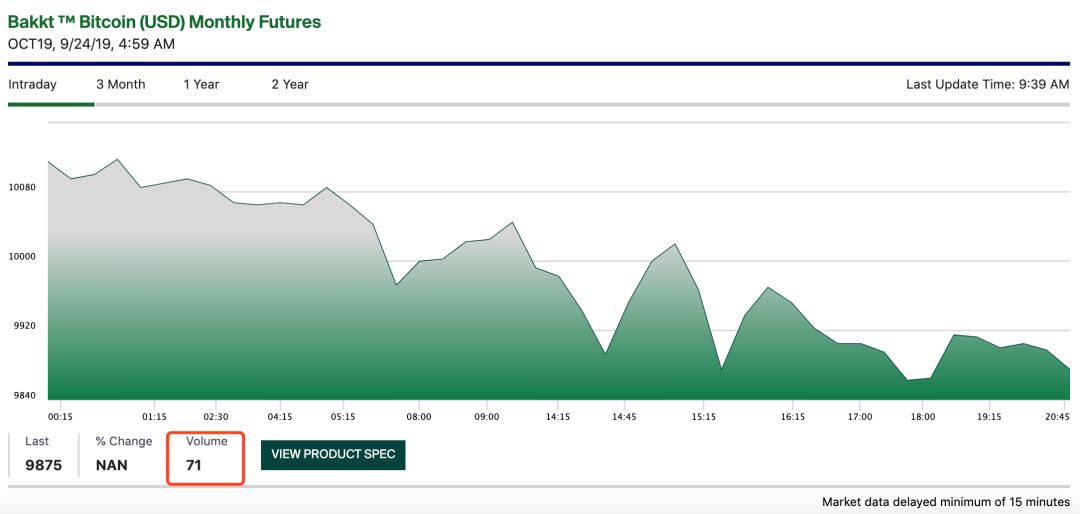
Bakkt said, “The new benchmark was born. The delivery price for the Bakkt month contract was $9,875, and the delivery price for the daily contract was $9,790.”
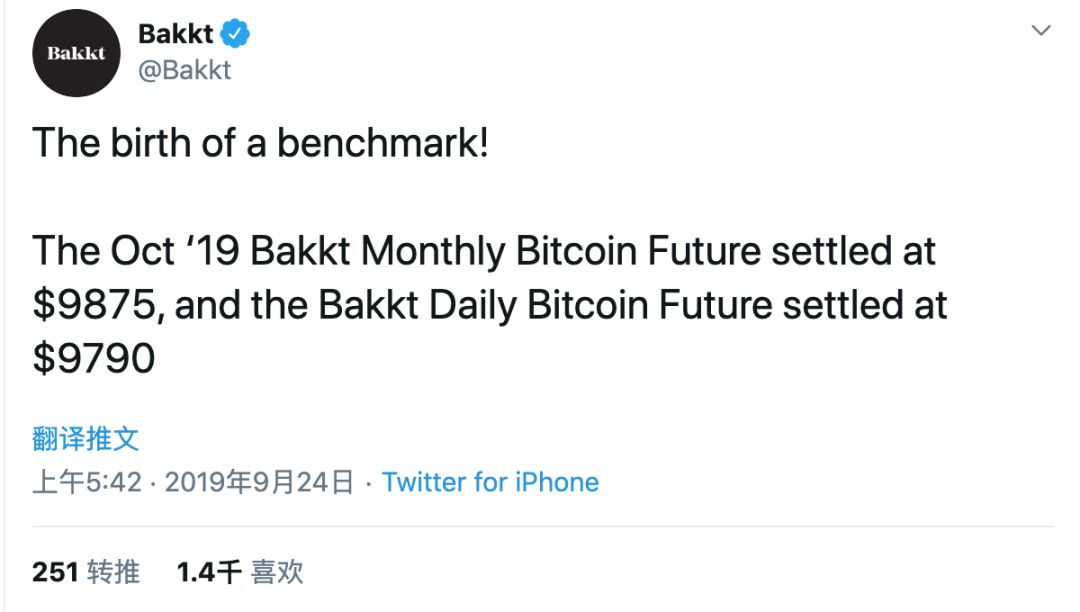
- Viewpoint | Is Bitcoin a macro hedging tool?
- The "public opinion war" of the dealer? BTC's Google search volume is 7 times that of Bitcoin
- Indicted by the SEC, Kik CEO suspected of collapse and drunk: "I don't want to go to jail"
The first day of trading was sluggish, CNBC encrypted channel host Ran NeuNer commented: People pushed to talk about the volume of Bakkt's first day. It takes time to build a new financial system under the legal system of an old financial system. We should not ignore the importance of this matter:
– Bitcoin contract for physical delivery
– Operated by the giants of the old financial system
– Supervised by New York/United States!
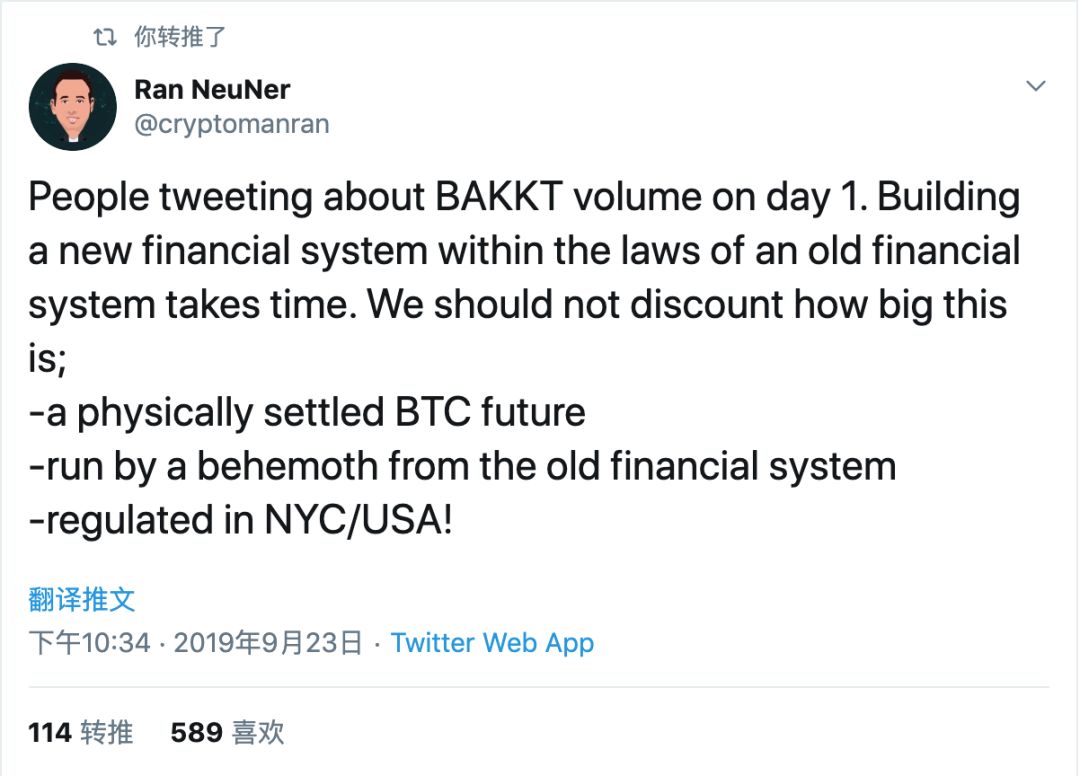
Bakkt's COO White Adam also expressed the same optimism, said in an interview with CNN, "Bakkt's launch is the first end-to-end bitcoin price discovery market. Bakkt is designed for institutional traders. We expect Bakkt's futures contracts to be traded through retail brokers."
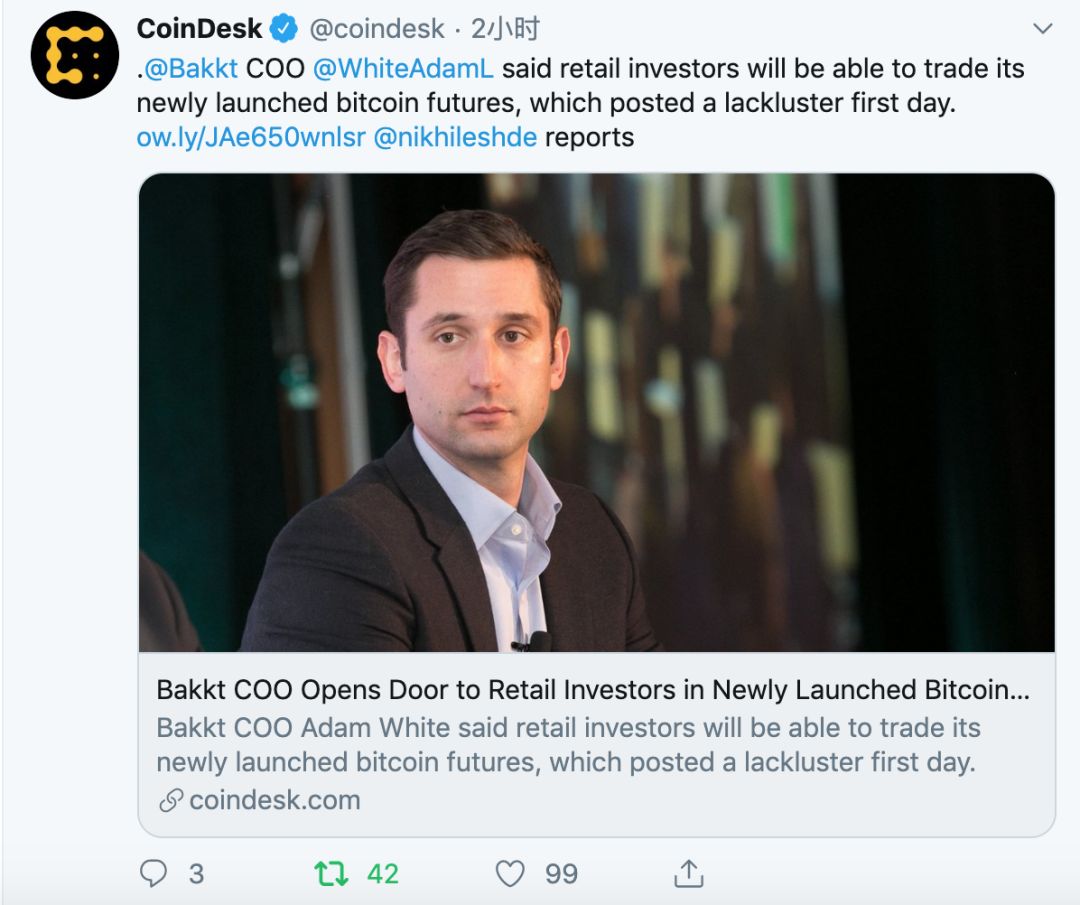
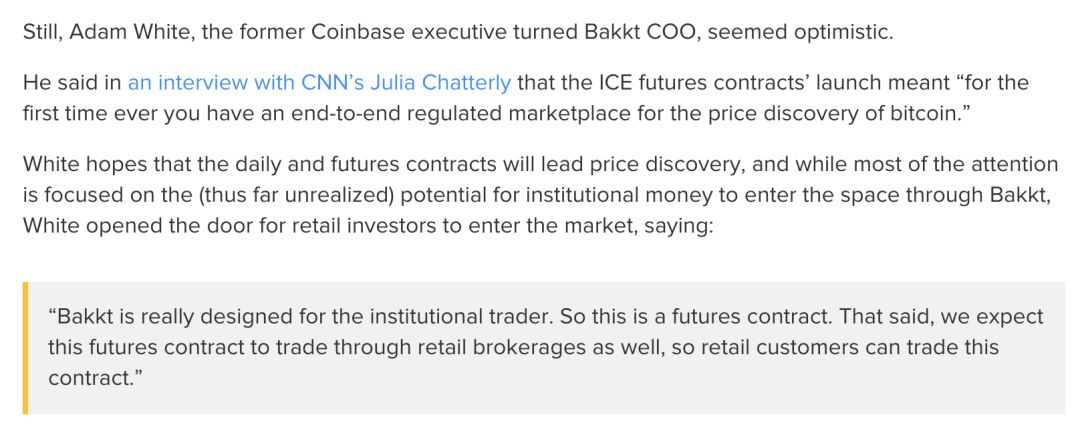
Bakkt is owned by the Intercontinental Exchange (ICE).
The Intercontinental Exchange is also the parent company of the NYSE.
The NYSE is the largest single stock exchange in the world.
Bakkt started the physical trading of bitcoin.
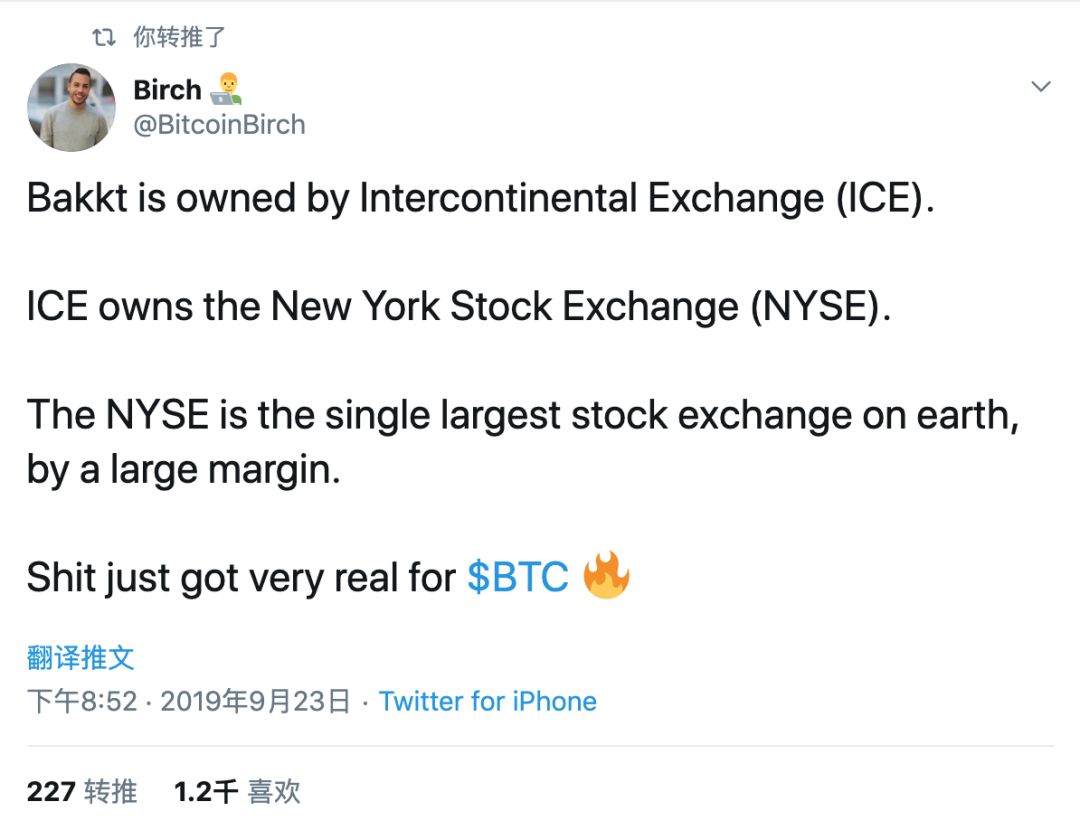
Former Bloomberg contributor Camila Russo said:
The MakerDao community is discussing whether to add untrusted assets (such as USDC, USDT, etc.) as collateral.
(Note: We often classify decentralized blockchain assets such as Bitcoin and Ethereum as trusted assets, while centralized assets such as USDT and USDC are classified as untrusted assets.)
Should MakerDAO, the cornerstone of the decentralized financial system, use centralized assets to support its stable currency DAI?
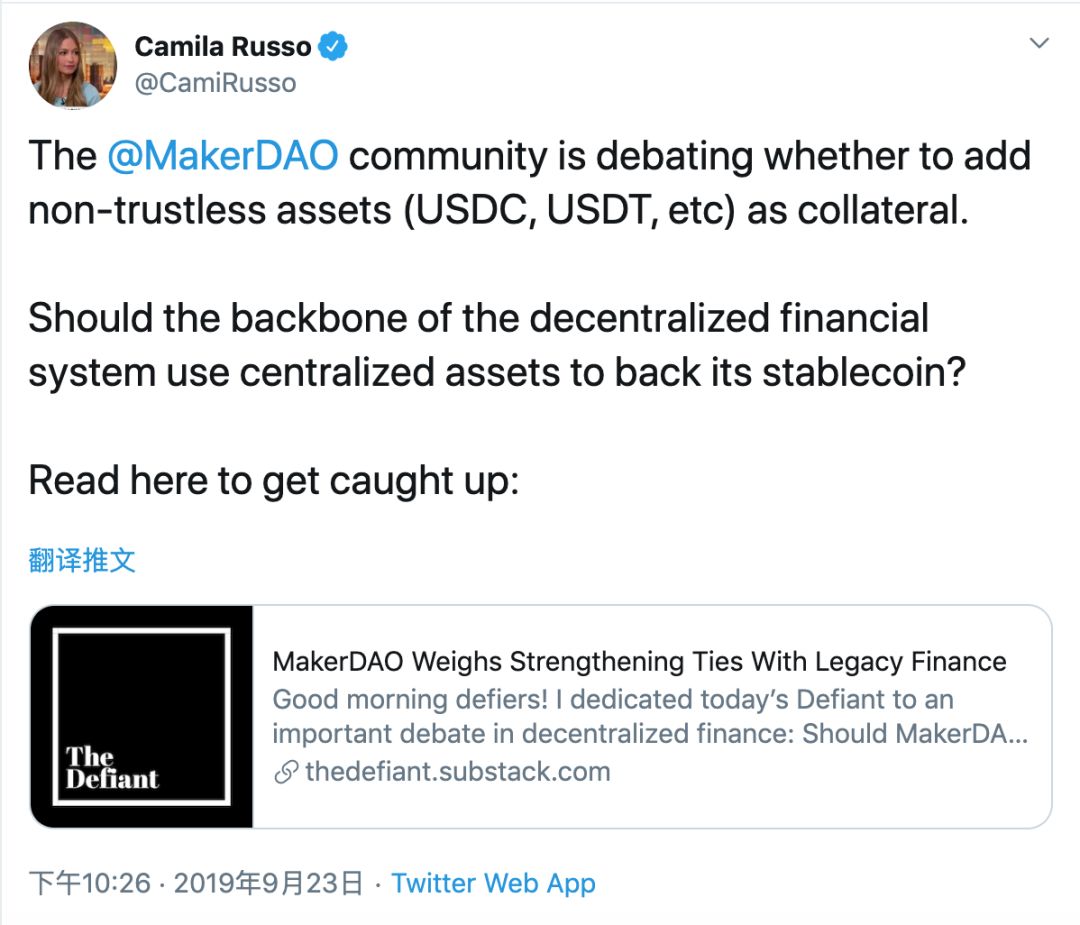
David Hoffman, Director of RealT Operations, commented:
The introduction of centralized assets in MakerDao is not necessary.
Multi-asset mortgage Dai is a great idea, but there is no need to add a new mortgage type.
(Note: The current stable currency Dai is generated by mortgage ETH, and the asset side is relatively simple. As early as June this year, the community said that the mortgage of the stable currency Dai will be transferred from single mortgage (ETH) to multi-collateral, adding ERC-20 token as asset side. Such as WBTC, BAT, etc.)
Now 1.3% of Ethereum locks are in the MakerDao agreement. Maker doesn't quickly consume flowing Ethereum.
Priority is given to ETH (mortgage generation Dai).
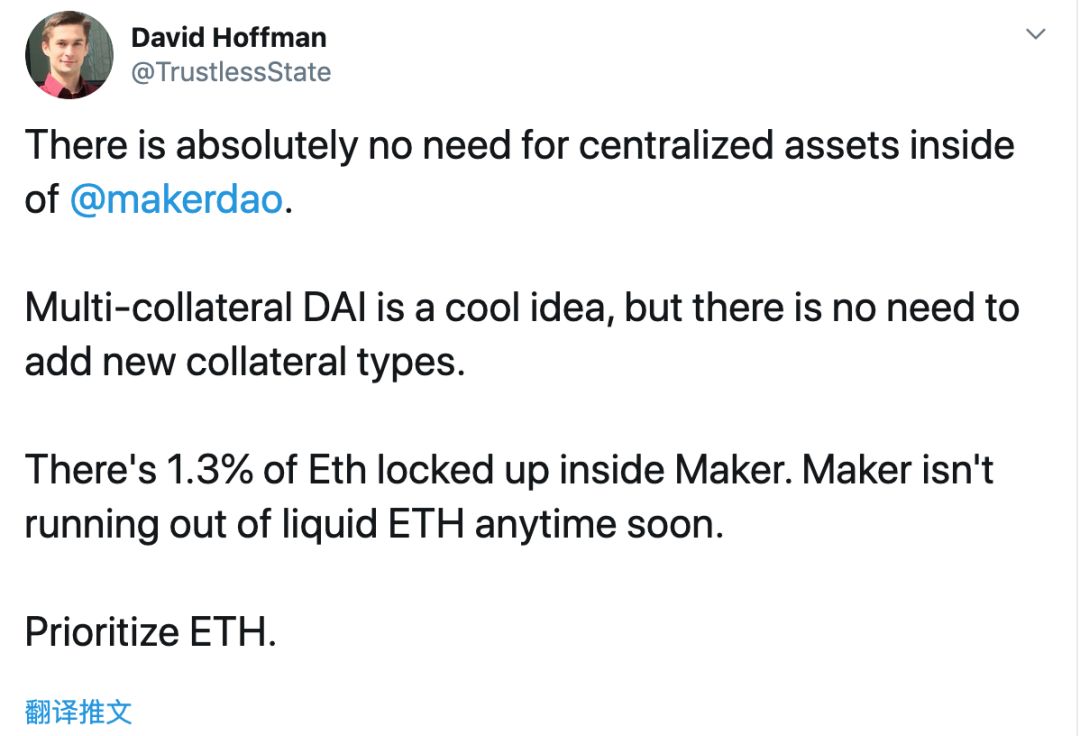
If MakerDao really wants to expand Dai's supply, the correct priority is:
Demand, demand, demand.
After solving the demand problem, perhaps we can solve the asset mortgage problem.
We don't want to put the carriage in front of the horse.
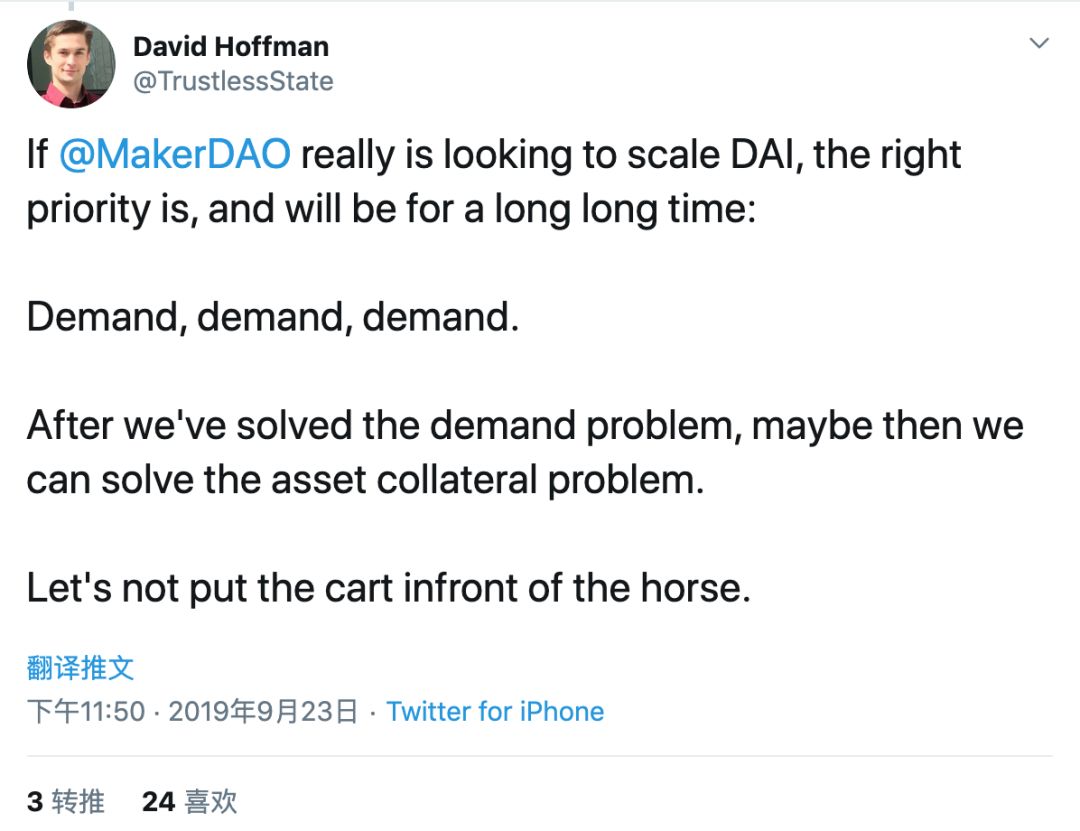
Founder of Ethereum, Little Prodigy Vitalik:
What is the mainstream view of the hardware cost of ASIC mining (application-specific integrated circuit mining) and the long-term ratio of electricity bills?
Last time I did a calculation, hardware costs accounted for 75%, electricity costs accounted for 25%, wondering if this has changed or is about to change.
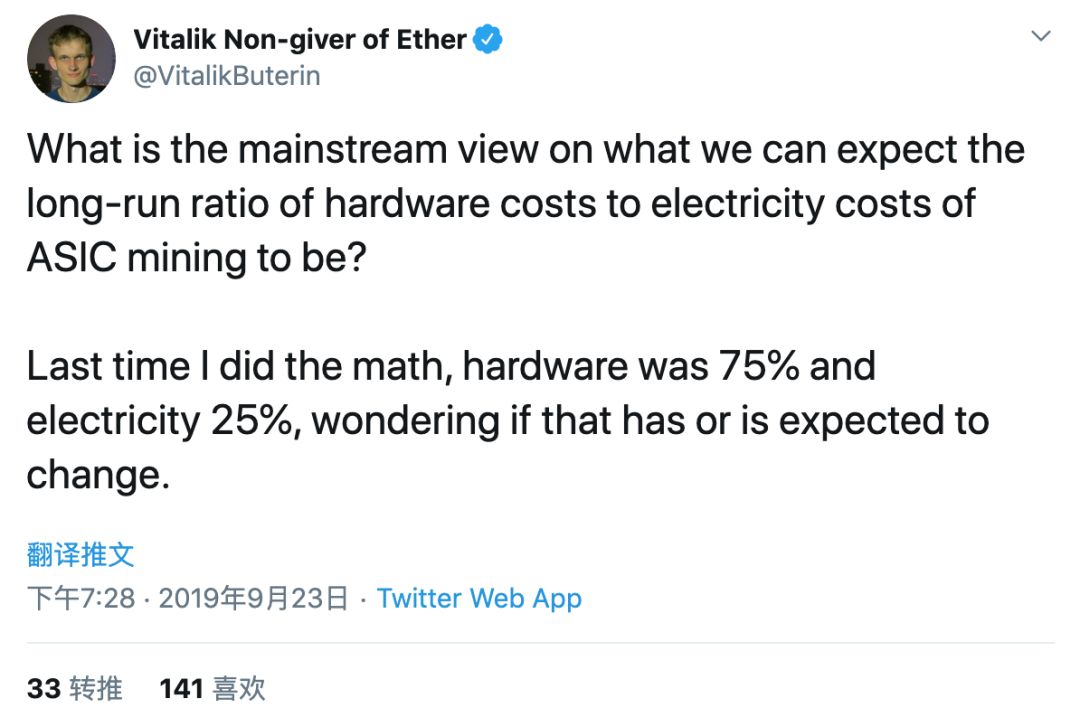
This issue is very important. If the hardware cost is dominant, then this discussion "ASIC mining is not a waste of power, because the ASIC mining machine can be turned on or off as needed to use the backup power, otherwise the power will be idle or heated. The device is used in both directions" is completely wrong.
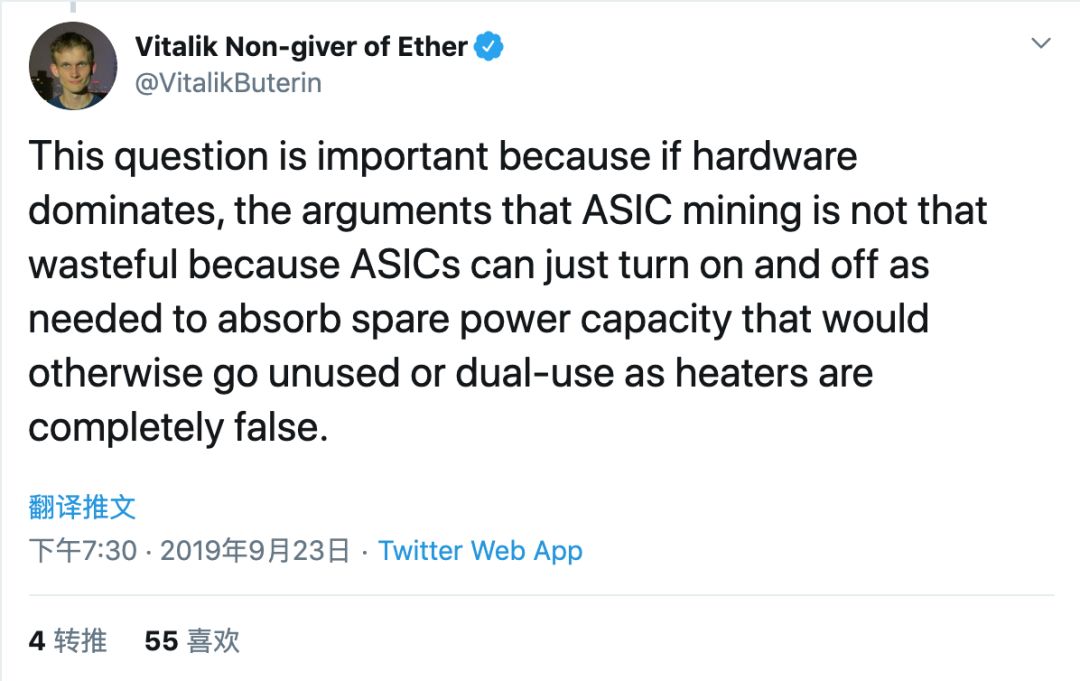
If the cost of electricity is dominant, then the discussion of idle power / dual use as a heater is more credible, but the argument that the ASIC mine has some advantages under the POS mechanism is no longer valid.
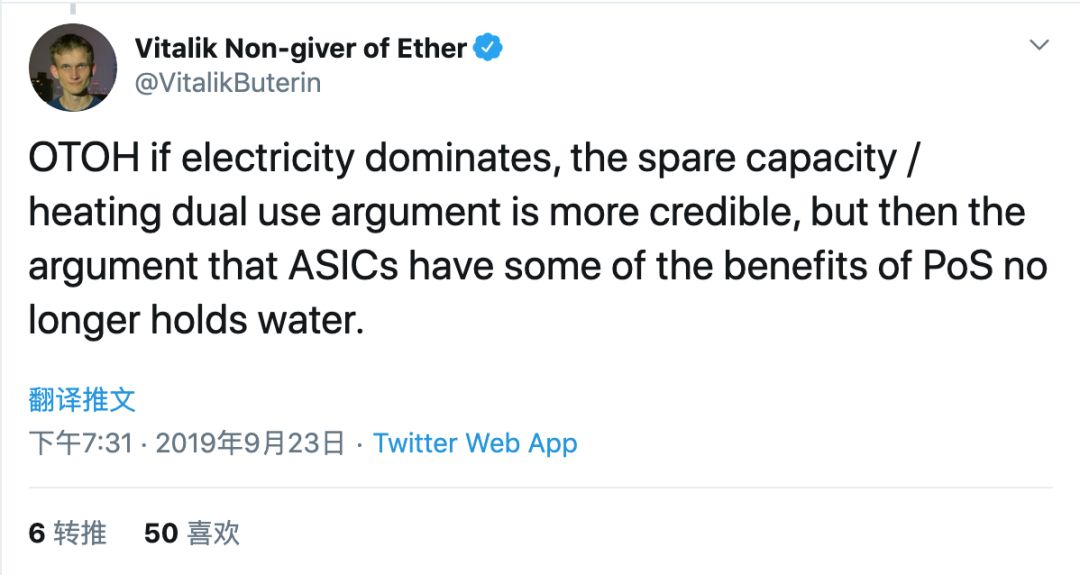
1. According to Cointelegraph, Germany's second largest stock exchange, the Boerse Stuttgart Group, has just launched its cryptocurrency exchange.
It is reported that the exchange is regulated by the German banking law and will initially provide btc/euro (euro) trading pairs.
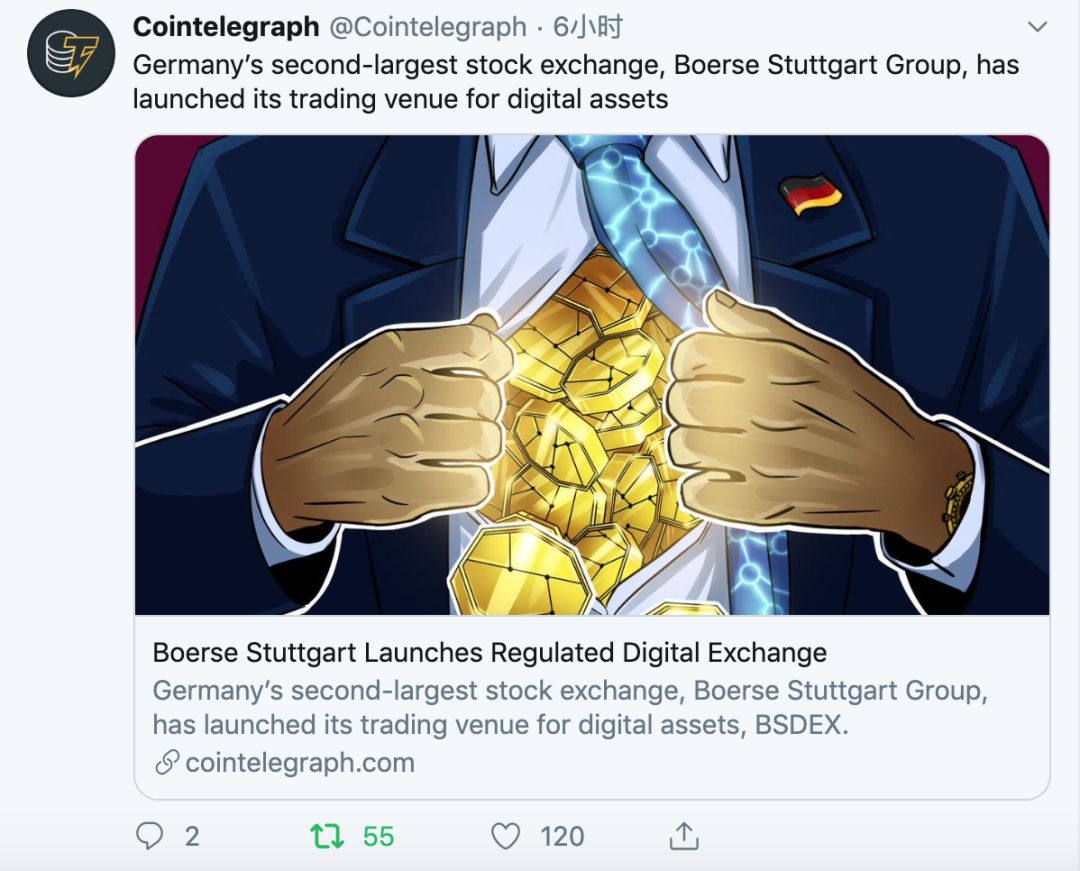
2. According to Coingape, Ripple added the UAE bank giant Fujairah National Bank to RippleNet. Fujairah National Bank will use Ripple's blockchain technology for cross-border payments.
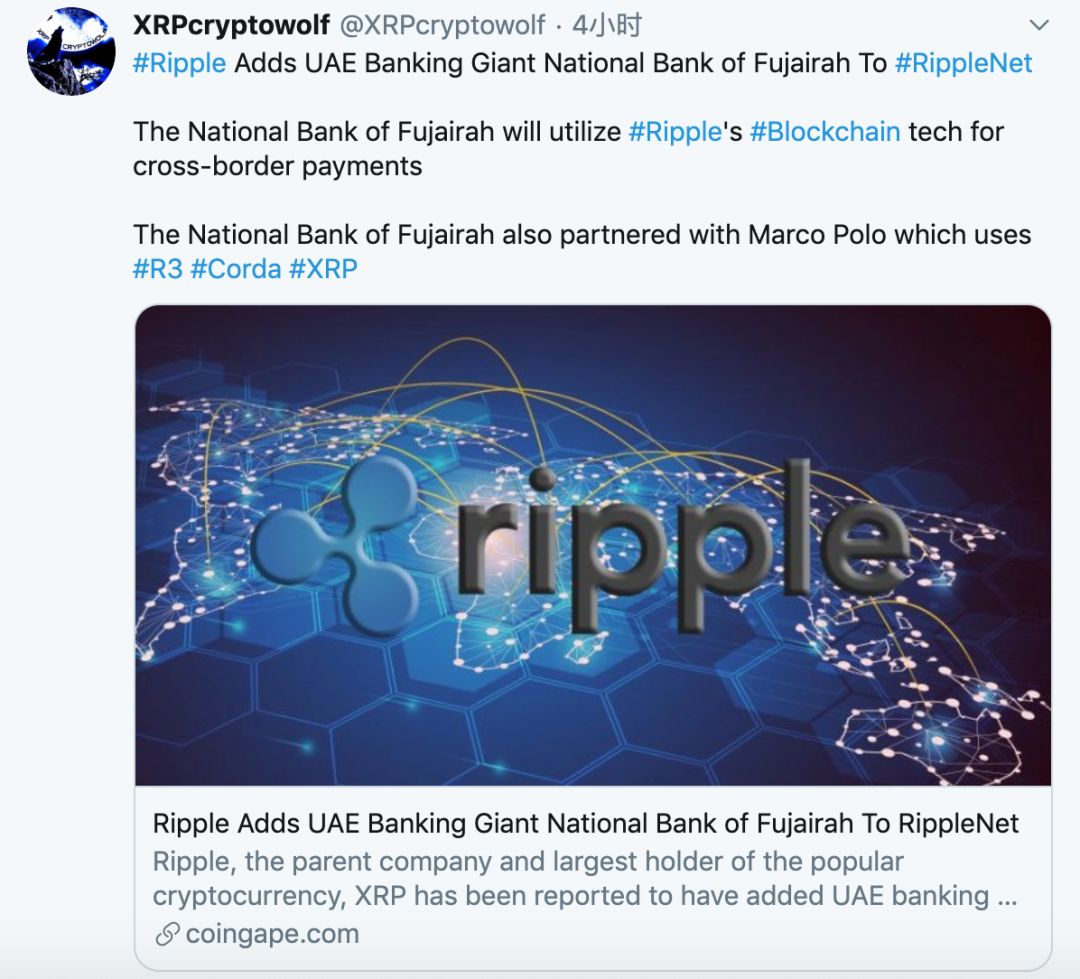
—— End ——
Turn around every day and see the big coffee point of view, bringing you the freshest and most interesting points. Welcome message, forward!
Author: Wang both March Source: No public wildflowers say
We will continue to update Blocking; if you have any questions or suggestions, please contact us!
Was this article helpful?
93 out of 132 found this helpful
Related articles
- MakerDAO multi-asset mortgage road was questioned by the community, the founder responded: the nature of the trust agreement will not change
- Blockchain needs academic spirit | 2019CCF Blockchain Technology Conference
- "Learning Times" article: Libra coins pose challenges to cryptocurrency regulation
- Bakkt low volume is in line with expectations? We chatted with the investor who opened the account.
- Tencent's largest shareholder, Naspers, Coinbase, and other companies, Immutable received another $15 million in financing
- BTC short-term risk of breaking, but should not be blindly bearish
- A picture to understand the difference between Bakkt's bitcoin futures and "traditional" futures




